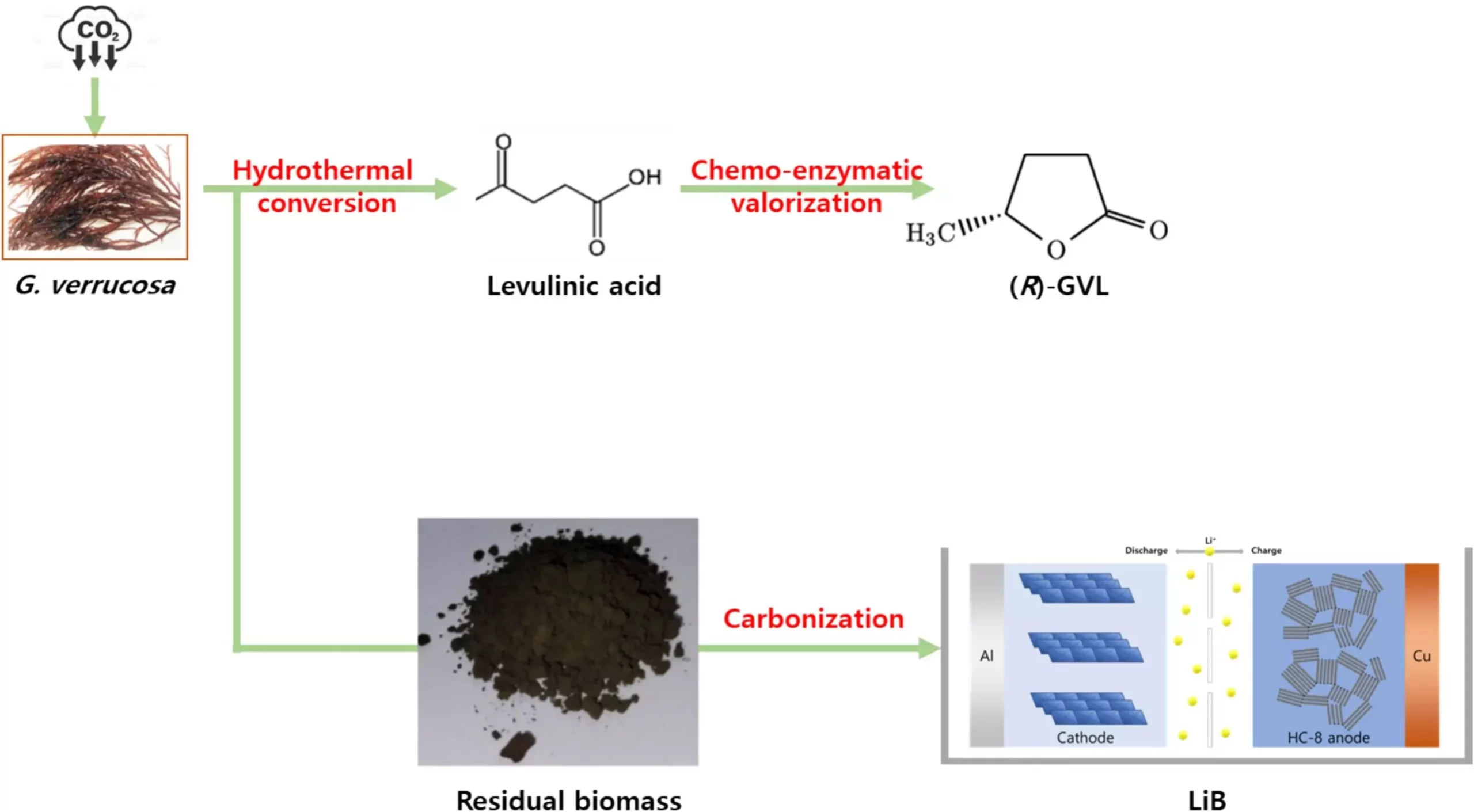The quest for sustainable energy sources continues to drive innovation, particularly within the realm of biofuels and energy storage technologies. Recent research by Dr. Kyoungseon Min and her team at the Gwangju Clean Energy Research Center of the Korea Institute of Energy Research highlights a groundbreaking development in this field. Through a cutting-edge method that converts common seaweeds, such as Kkosiraegi, into high-quality bio-aviation fuel precursors and energy storage materials, this research represents a potential turning point in our energy strategy.
The growing demand for eco-friendly fuel alternatives has increased public interest in biomass sources, particularly marine biomass, given its abundant availability. Seaweed is emerging as a significant player in this sector, primarily due to its potential to reduce greenhouse gas emissions by significant margins — estimations suggest reductions of up to 82% compared to conventional aviation fuels. Dr. Min’s research emphasizes the value of seaweed not only as an edible product but also as an essential component in advancing biofuel technology.
The production of (R)-gamma-valerolactone (GVL) from seaweed is central to this innovative approach. Traditionally, biofuel production has relied on complex processes involving microbial fermentation. However, the method introduced by Dr. Min’s team streamlines this process by employing a one-step enzymatic reaction. By leveraging this technology, seaweed can be transformed into levulinic acid via straightforward acid treatment. Subsequently, an engineered enzyme converts levulinic acid into (R)-GVL, significantly enhancing the yield of precursor material – up to ten times more than standard fermentation processes.
The focus on creating optically pure GVL presents an additional layer of complexity. GVL’s potential extends well beyond biofuels; it can also be utilized as an intermediate in the production of biopharmaceuticals, specifically for treating conditions like hypertension. However, the traditional conversion methods often yield a mix of optical isomers, which limits their versatility and efficacy in high-value applications. The ability to produce selectively the (R)-form of GVL sets this research apart, as it ensures a more efficient production line for specific industrial uses.
The innovative enzyme developed by Dr. Min’s team achieves an astounding level of accuracy, yielding over 99.999% purity in the production of (R)-GVL. This advancement paves the way for applications within the biopharmaceutical sector that were previously impeded by the lack of reliable production technologies for this particular optical isomer.
One remarkable aspect of this research is the emphasis on waste minimization. The production of levulinic acid generates residual biomass, which can be repurposed rather than discarded. This residual material, derived from Kkosiraegi, has been converted into a valuable anode material for lithium-ion batteries. Employing carbonization techniques to prepare hard carbon from this waste showcases the dual benefits of the process: it not only advances biofuel production but also contributes to energy storage solutions.
Preliminary tests confirm that this carbonized material demonstrates promising characteristics in terms of capacity, performance, and lifespan when applied in lithium-ion batteries. This innovation underlines the broader potential for marine biomass in diverse sectors, moving beyond fuel production to address storage needs that are pivotal in today’s energy landscape.
Geopolitical Advantages and Future Implications
Dr. Min highlights South Korea’s unique geopolitical context, which places the nation in proximity to vast seaweed resources. This factor not only allows for an abundant supply of raw materials but also promotes regional development and economic growth through bioinnovation. The intersection of marine biomass resource management and cutting-edge technology may support a robust sustainable energy ecosystem that aligns with global efforts toward carbon neutrality.
As the eco-friendly bio-aviation fuel market is anticipated to grow significantly, accounting for potentially 35% of the aviation fuel market by 2070, strategies for efficiently producing and utilizing these biofuels will be crucial. The methods explored in this research not only answer the need for cleaner fuels but also set the stage for broad adaptation in other industrial uses, potentially heralding a new era in sustainable practices across multiple sectors.
The work of Dr. Kyoungseon Min and her team exemplifies a vital step forward in sustainable energy solutions. By effectively harvesting seaweed for both bio-aviation fuels and energy storage applications, this research reflects an innovative approach that aligns environmental stewardship with technological advancement, promising a future where marine resources could play an instrumental role in the global energy landscape.

